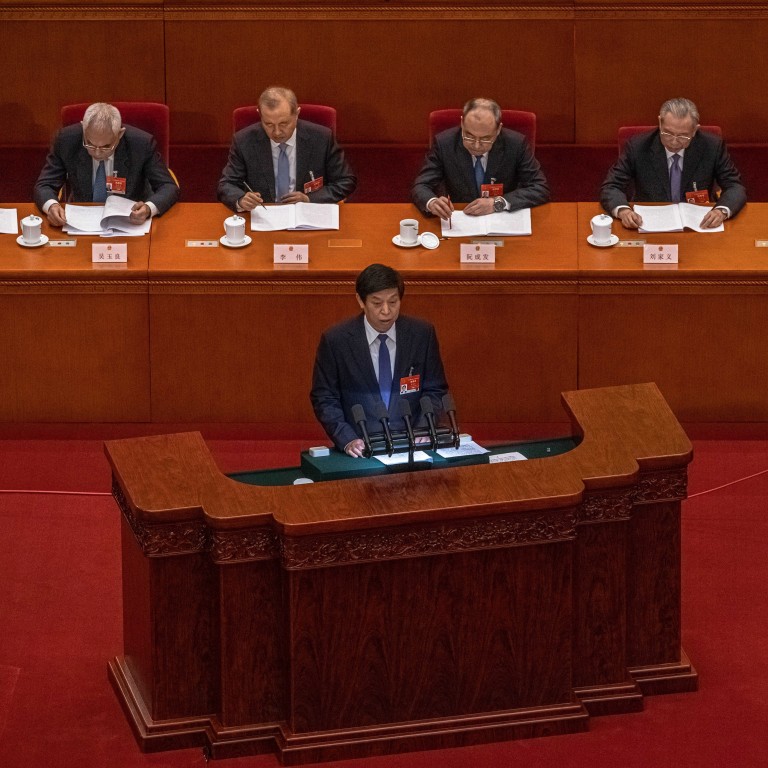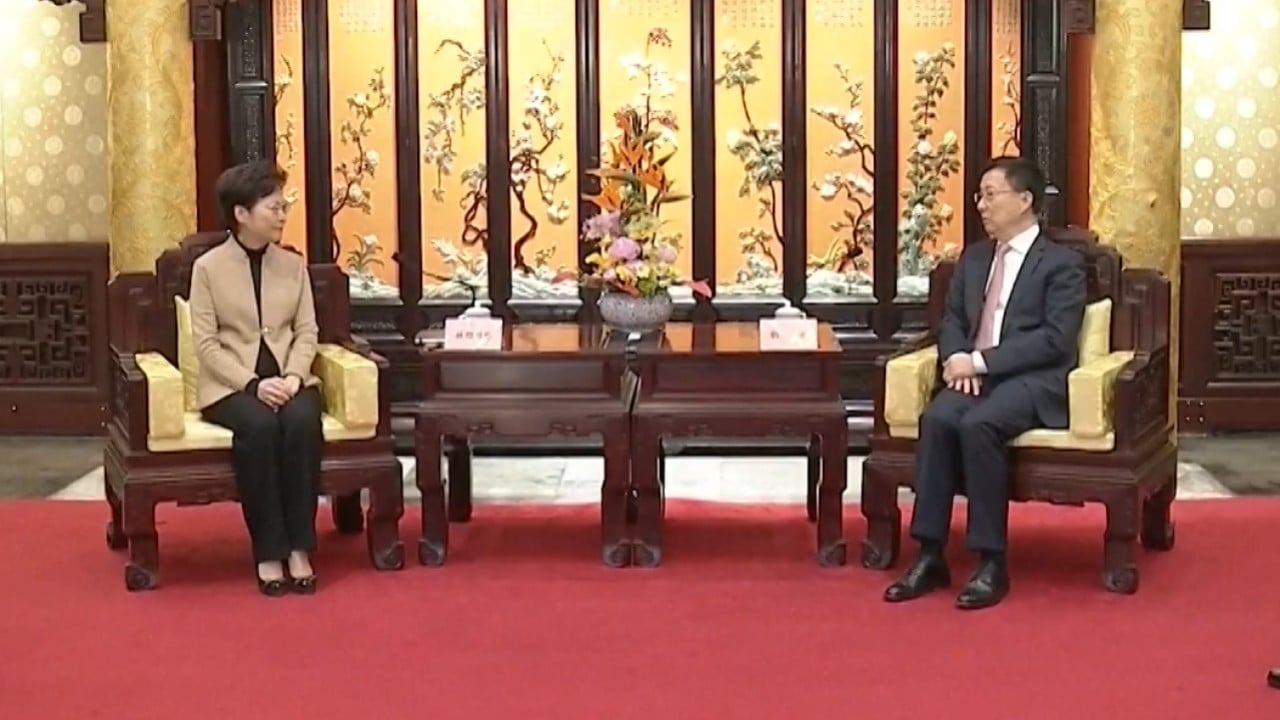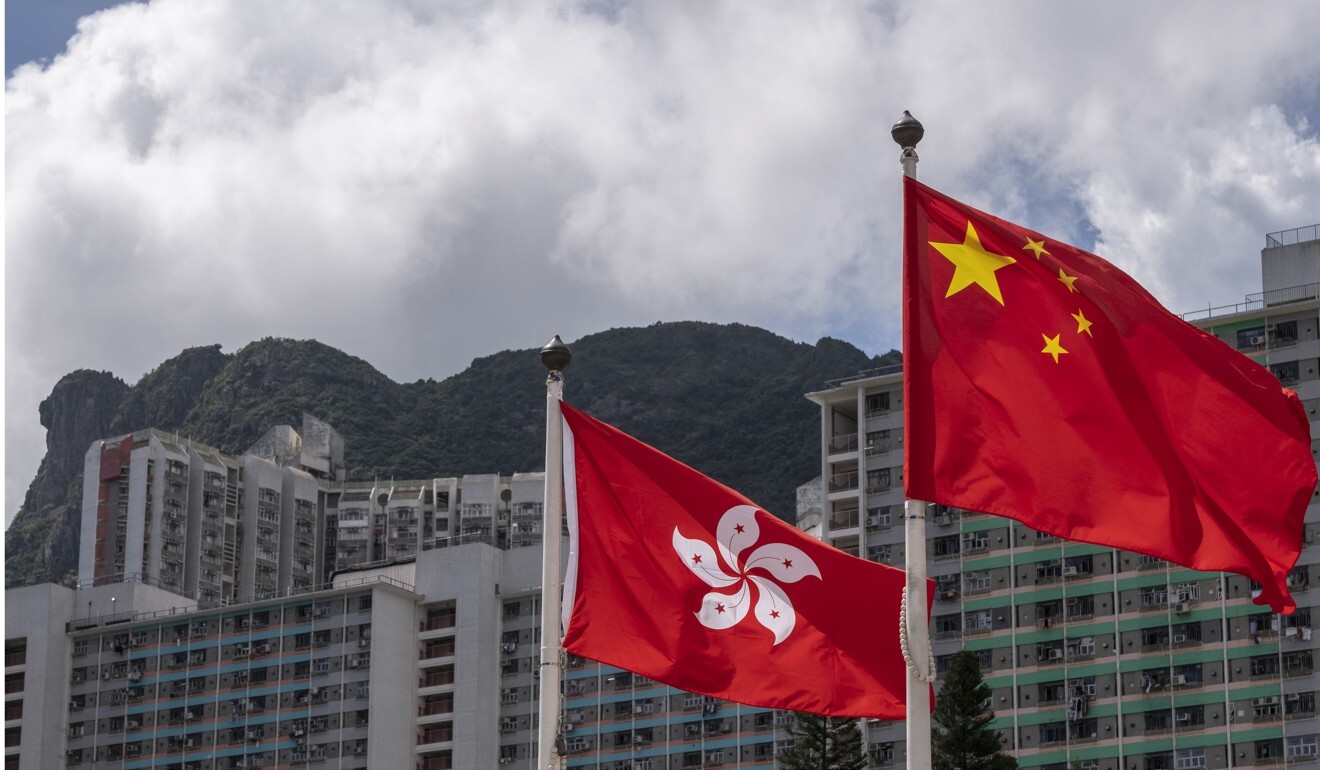
Beijing to use ‘combination punches’ when it comes to overhauling Hong Kong electoral system, says top Chinese official
- Chairman of NPC Standing Committee Li Zhanshu makes remark while delivering his work report during annual parliamentary session
- Move aimed at safeguarding constitutional order and combating those who want ‘Hong Kong independence’
The national legislature is expected to approve the biggest shake-up to Hong Kong’s electoral systems when the session concludes on Thursday, which officials said was primarily aimed at preventing subversion under the city’s national security law.

01:07
Beijing tells Hong Kong leader to ‘seriously implement’ overhaul of city’s electoral system
“The NPC Standing Committee will throw a set of legal ‘combination punches’ by making revisions to the relevant law on the basis of the decision of this [NPC] meeting,” Li said.
“The NPC will safeguard the constitutional order in Hong Kong and combat forces seeking ‘Hong Kong independence’, ensuring that patriots administer Hong Kong with legal safeguards provided for the city’s long-term prosperity and stability.”
Li also said the series of legal measures were aimed at protecting national sovereignty, security and developmental interests.
What we do – and don’t – know about Hong Kong’s electoral overhaul
The resolution, once passed by the national legislature, would authorise its standing committee to amend Annex 1 and 2 of the Basic Law, the city’s mini-constitution, which cover the method of electing Hong Kong’s chief executive and the legislature.
Sources earlier suggested Beijing planned to expand the Election Committee – which is tasked with electing the city leader – from 1,200 members to 1,500. The body would also be given considerable powers to nominate all candidates for Legislative Council elections, while also sending some of its own members to the legislature.
The overhaul would effectively leave the fate of the opposition at the mercy of this committee.
On the enactment of the security legislation, Li also said that China had gained “extensive understanding” from foreign countries, after the NPC issued letters to 93 parliaments explaining the country’s stance.
“Its implementation reversed Hong Kong’s grim situation in which its field of national security had remained ‘undefended’ for a long period of time,” he said.

About 100 opposition figures have been arrested under the national security law since it took effect.
Pro-establishment heavyweight Tam Yiu-chung, the city’s sole delegate to the standing committee, said the proposed changes would target local politicians who colluded with foreign forces and endangered national security.
“It showed Beijing’s determination to combat those anti-China troublemakers,” he said. “Pro-democracy forces won’t be eliminated as long as they genuinely pledge allegiance to Hong Kong.”
Tam said delegates to the national legislation had discussed the draft resolution for the first time on Monday and had proposed amendments, but refused to give details of those proposals.
He expected the final resolution, to be made public on Thursday, would only include the rationale for, and fundamental principles behind, the electoral changes.
The standing committee would then further deliberate the details of that reform “in a few meetings” before amending the Basic Law, he said.

